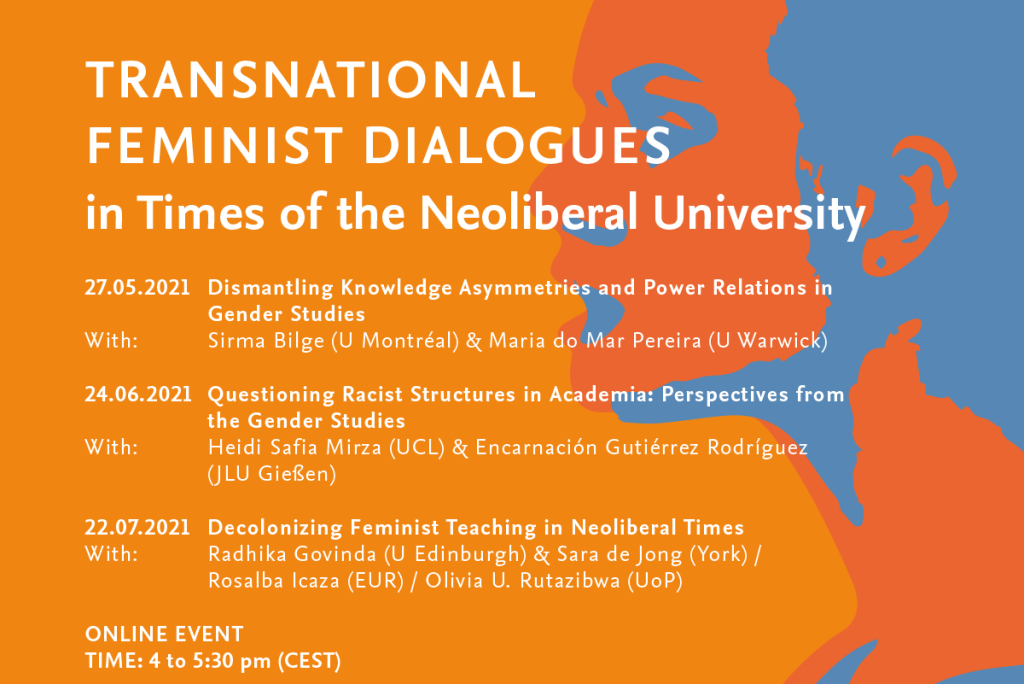
MvBZ YouTube Channel
The Margherita von Brentano Center for Gender Studies at Freie Universität Berlin has organized the third edition of the Transnational Feminist Dialogues this summer term 2021.
The series has focused on the neoliberal character of today´s higher educational system and has address some structural phenomena related to power relations from a critical perspective. The invitation was to reflect and discuss which discourses, policies and actors are shaping universities in times when neoliberalism has reached all spheres of the higher educational system and what alternatives we have to counter this one-sidedness
The first session, „Dismantling Knowledge Asymmetries and Power Relations in Gender Studies” with Teresa Kulawik (Södertörn University) and Maria do Mar Pereira (University of Warwick), has focused on the question about the asymmetries that shape the production and circulation of knowledge not only within Gender Studies, but also within/between Diversity, Queer, Intersectionality and Postcolonial Studies. Both guests discussed about the way in which marginalized and/or critical perspectives and voices find their way in the neoliberal higher educational system, but also the depoliticization of this feminist intellectual projects in the neoliberal university.
The second session, “Questioning racist structures in Academia: perspectives from the Gender Studies” with Heidi Safia Mirza (Goldsmith) and Encarnación Gutiérrez Rodríguez (Justus-Liebig-Universität Giessen), has put the focus on the racist structures that shape science and academia. The focus was also put on the contributions that Gender Studies can make to dismantle them, forms of resistance and the possibilities of solidarity, both within the academy/university context and beyond its borders.
The third session, „Decolonizing Feminist Teaching in Neoliberal Times” with Radhika Govinda (University of Edinburgh), Sara de Jong (University of York) and Rosalba Icaza (Erasmus University Rotterdam) brought to discussion what a decolonization of feminist teaching would look like and how it can take place in the neoliberal higher educational system. Questions they have discussed were: What happens with feminist pedagogies nowadays? Do they have a challenging power? Is it possible to create radical and alternative spaces within neoliberal academia? What possibilities does the pedagogical space offers unlike other academic practices?
Find the video documentation under the following Link:
https://youtube.com/playlist?list=PLqiyv4YjL2YLl2YXmbGCQzkX0IJiJK-jp